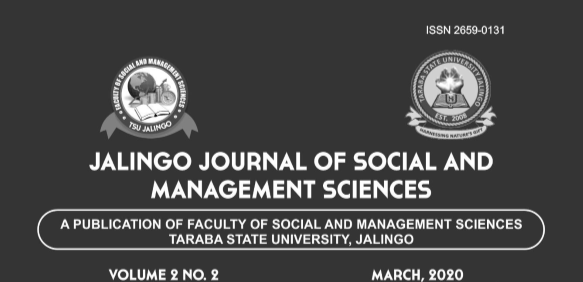Strategic Crisis Management Approaches and Sustainable Development: The Jalingo Experience
Keywords:
Actors, Concepts, Crisis, Crisis Management, Sustainable Development, TheoriesAbstract
Globally, crisis occurs daily. It is essential that leaders study internal and external factors responsible for crisis situations and to identify organizational strategies for preventing and managing crises whenever they do occur. It is a strategic imperative to understand what crisis situations are and their causes as well as how to strategically and tactically manage and prevent them. Crisis can occur in small or large organizations and at different levels within them. With increased globalization and extended relationships, the effects of crises are felt worldwide. Chancellor Angela Merkel of Germany informs that, Peace is accordingly one of the central pillars of the 2030 Agenda, the centerpiece of the International Community’s efforts under the United Nations auspices to foster worldwide sustainable development. The various crises around the world are of concern to the International community because approximately 1.5 billion people live in unstable political environment in countries torn by violence. Armed conflicts cause immeasurable suffering, set countries and entire regions many years back economically and impede development. Brandt, states that “Peace is not everything, but everything is nothing without peace.” The main thrust of this paper is to examine the various crises management theories and approaches. It highlights the importance of early identification and management of crises and issues, which in return are strongly intertwined with a fundamental positive internal communal climate, and make for sustainable development. The paper proffers some solutions for effective crisis management and resolution.

Downloads
Published
Issue
Section
License
Copyright (c) 2023 JALINGO JOURNAL OF SOCIAL AND MANAGEMENT SCIENCES

This work is licensed under a Creative Commons Attribution-NonCommercial 4.0 International License.
